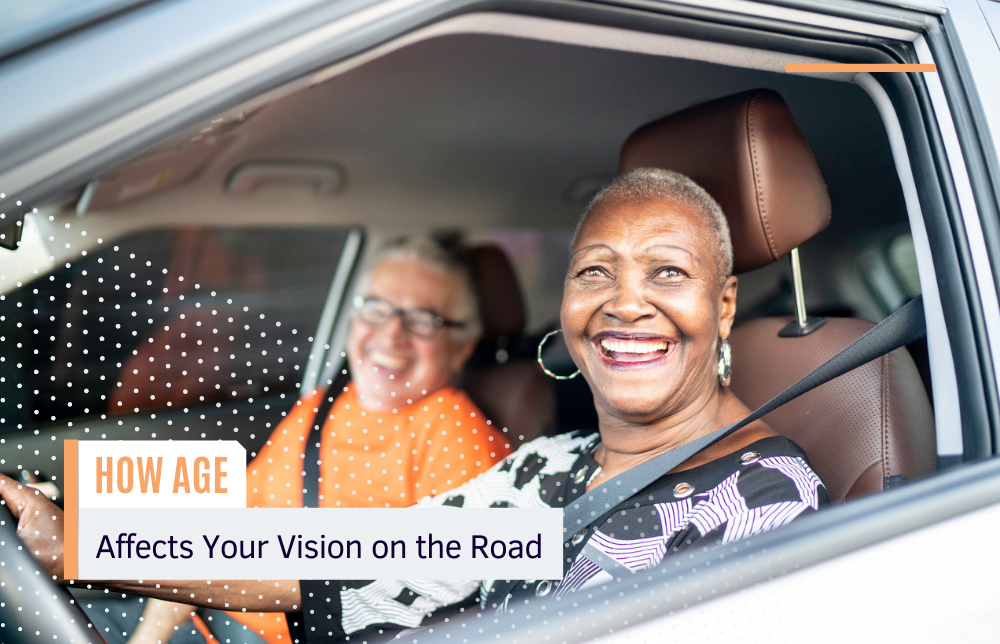
Healthy vision on the road can be the difference between safe driving and getting into an accident. Because eyesight goes through changes as we age, maintaining the health of your eyes is important.
About 90% of the Info Drivers Process Comes Through the Eyes
It’s a misconception that older drivers are unsafe drivers. One report determined older drivers don’t necessarily put others at risk so much as they themselves were more at risk. Statistics show drivers aged 21-24 are 2x more likely to be involved in a fatal crash than those aged 65-74.
But it’s still important to understand that some vision changes are simply caused by age. Each can present unique challenges on the road.
Adapt Your Habits to Better Suit These Changes to Your Vision on the Road
- Sharpness of vision When people are young, certain parts of the eye are strong and flexible. After the age of 40, these areas stiffen and weaken. This condition is called Presbyopia and results in a form of farsightedness, so closer objects become harder to focus on.
Presbyopia’s effects on the road include harder-to-see dashboards, GPS screens, and road signs.
- Night vision After the age of 50, the eye’s lens changes, allowing less light to reach the retina in the back of the eye.
- Field of vision Every decade, peripheral vision tends to decrease between 1 and 3 degrees. By your 70s or 80s, your field of vision may be 20 to 30 degrees less than it used to be.
- Ability to quickly adapt to different light The eyes’ ability to adapt to sudden changes in light conditions diminishes as we age. This might be noticeable when scattered clouds cause sunlight to repeatedly brighten and dim.
You may not notice some of these problems right away, but they are all very common. Even minor vision disturbances can completely change the way you respond to your surroundings. And your vision needs to adapt to countless changes in light and the environment throughout the day.
That’s why routine eye exams with your eye doctor are so important.
An eye doctor can help you treat these conditions, giving you a clearer and safer driving experience. Routine eye exams can also be used to detect eye disease in its earliest stages, including glaucoma, macular degeneration, and diabetic retinopathy. Your association and AMBA have a Vision Plan that covers everything from checkups to new eyewear and prescription lenses and more. Sign up now at www.AMBAdentalvision.com or call 866-979-0497.
Sources: https://www.nia.nih.gov/health/aging-and-your-eyes
https://ec.europa.eu/transport/road_safety/specialist/knowledge/old_en https://www.cdc.gov/transportationsafety/teen_drivers/teendrivers_factsheet.html




